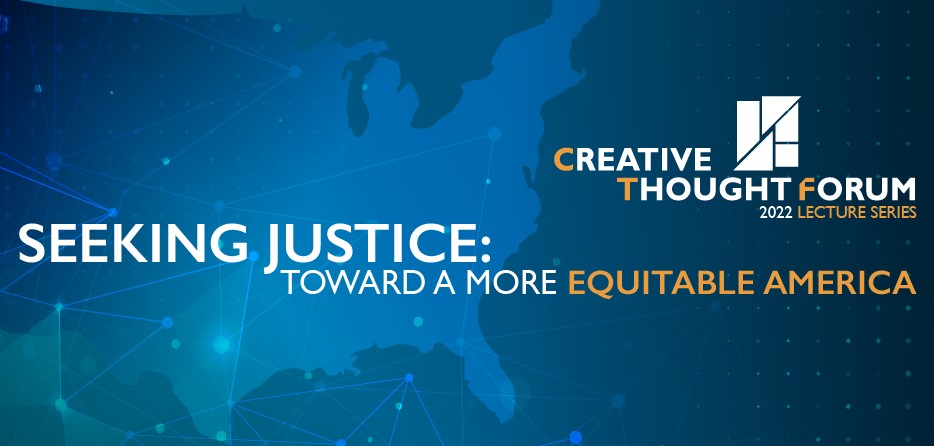On June 2 SAR held the sixth and final webinar in this year’s Creative Thought Forum series called Seeking Justice: Toward a More Equitable America, which launched in February. The series was primarily funded by the National Endowment of the Humanities, with support from others. Seeking Justice explored a range of contemporary issues in a format as conversational as we could make it. Topics ranged from controversies over the management of federal lands in the West to interpretations of the unprecedented increase in U.S. homicides registered in 2020 and continuing as I write.
The original idea for the series was to offer a discussion between two experts presenting somewhat divergent positions, with a moderator managing the exchanges. The challenge there was to generate lively but civil debate. Our proposal to NEH also called for a follow-up, in-person discussion of the webinar topic on the SAR campus—a fine idea that had to be suspended for half of the series in response to a new surge of COVID-19. Toward the end of the series we were able to revive the post-webinar discussion in hybrid form, with a group on the SAR campus sharing ideas with remote participants joining us via our online conference platform.
The SAR staff worked hard to perfect the webinar presentations. Presenters participated in tech-checks to ensure that their lighting, cameras, and microphones were working well. We invested in a major upgrade of our campus network to minimize the technology hiccups that plagued everyone during the early months of the pandemic: video or audio distortion, presenters suddenly booted off the screen for reasons known only to the Internet gods, and the like. SAR’s improved system held up well, but in a few cases speakers connecting from home systems had transitory problems. In sum, perfection proved elusive, but we continued to improve.
We were able to recruit some prominent, formidable thinkers: Ojibwe writer and SAR alumnus David Treuer; historians Patty Limerick and Sophia Rosenfeld; essayist Rebecca Solnit; economist John K. Roman; journalist Drake Bennett; and legal scholars Trevor Reed (ASU), Madhavi Sunder (Georgetown), and Jane Anderson (NYU). Younger and less well-known presenters more than held their own in this impressive crowd. By happy coincidence, one of the moderators, the Yale-trained anthropologist Sayd Randle, reminded me that as an undergraduate at Williams College she had taken a course of mine a dozen years ago.

Map showing location and number of registrants for “Seeking Justice” series
SAR’s move in the direction of contemporary issues was a valuable experiment. That said, as SAR restarts its in-person programming in the coming weeks and months, we’ll return to our traditional strengths: informative events that draw on our Southwestern heritage and commitment both to the social sciences and Native American arts. We expect to continue our technology upgrades to ensure that remote audiences participate as fully as possible in events on campus. Seeking Justice confirmed what we gleaned from our response to the pandemic—that SAR has an important national and even international audience that merits our attention.
Below are links to all six of the Seeking Justice webinars now available on YouTube. Please note that uploading to YouTube sometimes results in degradation of the visual quality of live events, which we broadcast in HD whenever possible.
- Seeking Justice 1: Justice, Public Lands, and Indigenous Peoples (February 18, 2022)
- Seeking Justice 2: Everyday Violence and Strategies for Its Reduction (March 10, 2022)
- Seeking Justice 3: Finding Just Solutions to Appropriation of Indigenous Creations (April 4, 2022)
- Seeking Justice 4: Climate Change and Environmental Justice (April 15, 2022)
- Seeking Justice 5: The “Crisis of Truth” in Democratic Societies (May 12, 2022)
- Seeking Justice 6: Rethinking Monuments and Memorials (June 2, 2022)
